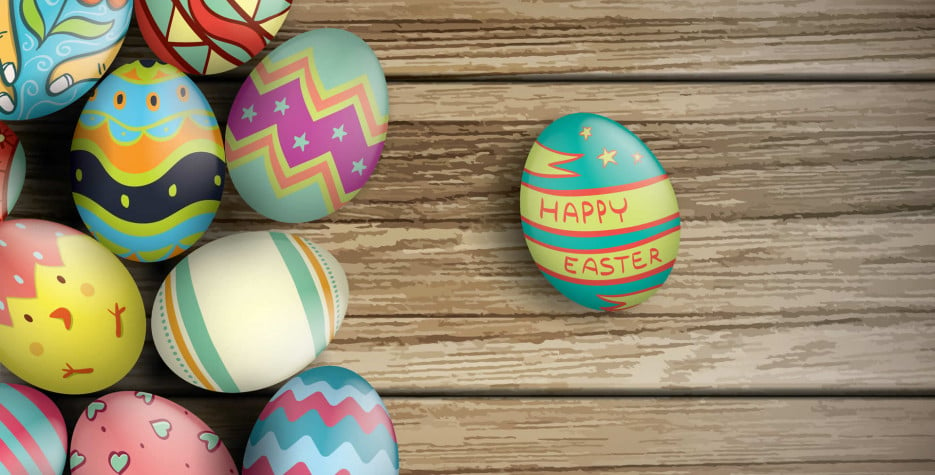The History and Origins of Easter
Sorry this is a day late!
Easter, which celebrates the resurrection from the dead of Jesus Christ, is a holiday actually based on an ancient Pagan ritual. Unlike most holidays, Easter does not fall on the same set date each year. Instead, Christians in the West celebrate Easter on the first Sunday after the full moon of the vernal equinox on March 21. Therefore, Easter is celebrated each year between March 22 and April 25. The exact origins of Easter are unknown, but some sources believe that the word “Easter” is taken from the Teutonic goddess of fertility and spring – Eostre. Easter has also been traced to the Latin words Hebdomada Alba – meaning white week – referencing Easter week in which white clothing is worn by people who get baptized.
The Pagan ritual of the Spring Equinox is a celebration of renewed life and the change that comes with spring. This solar festival is celebrated when the length of the day and the length of the night are equal, which occurs twice a year at the spring and fall Equinox. Throughout history, this turn in the seasons has been celebrated by various cultures that had held festivals in honor of their gods and goddesses at these times of the year. Today, Pagans continue to celebrate spring and attribute the change of the seasons to the powers of their god and goddess – also portrayed as The Green Man and Mother Earth.
For Christians, Easter is associated with the crucifixion and resurrection of Jesus Christ approximately 2,000 years ago. Jesus Christ, the true Messiah, was crucified and resurrected at the time of the Jewish Passover. Lent, a 40-day period that leads up to Easter Sunday, is a time of reflection that represents the 40 days that Jesus Christ had spent alone in the wilderness before beginning his ministry. At this time, Christians believe that he had survived many temptations by the devil. The day before Lent starts, known as Fat Tuesday or Mardi Gras, is a final celebration of fun and food before the fasting begins. The week before Easter is known at the Holy Week. It includes several important days, including Maundy Thursday, which commemorates the last supper, Good Friday, which honors the crucifixion day, and Holy Saturday, which is associated with the transition time between the crucifixion and resurrection.
People celebrate Easter according to their religious denominations and beliefs. On Easter Sunday, many children wake to find that the Easter Bunny has left them a basket of goodies, and that he has hidden eggs decorated earlier in the week. Children hunt for the decorated Easter eggs around their home, and many organizations hold Easter egg hunts for children in the neighborhood. The Easter Bunny, or “Easter Hare”, is a symbol of fertility, as rabbits have often multiple births. Roman beliefs state that all life comes from eggs. In Christian societies, eggs are considered to be a seed of life and are symbolic to Jesus Christ’s resurrection.
Easter remains one of the most popular religious celebrations in the world. In addition to the holiday’s religious significance, Easter also has a commercial side. This is evident in the mounds of marshmallow chicks and jelly beans that appear in stores at the start of every spring. Over the centuries, pagan traditions and folk customs from all over the world, including the Easter Bunny, candy, baskets, and Easter eggs, have become a standard part of this holy holiday.



Comments
Post a Comment